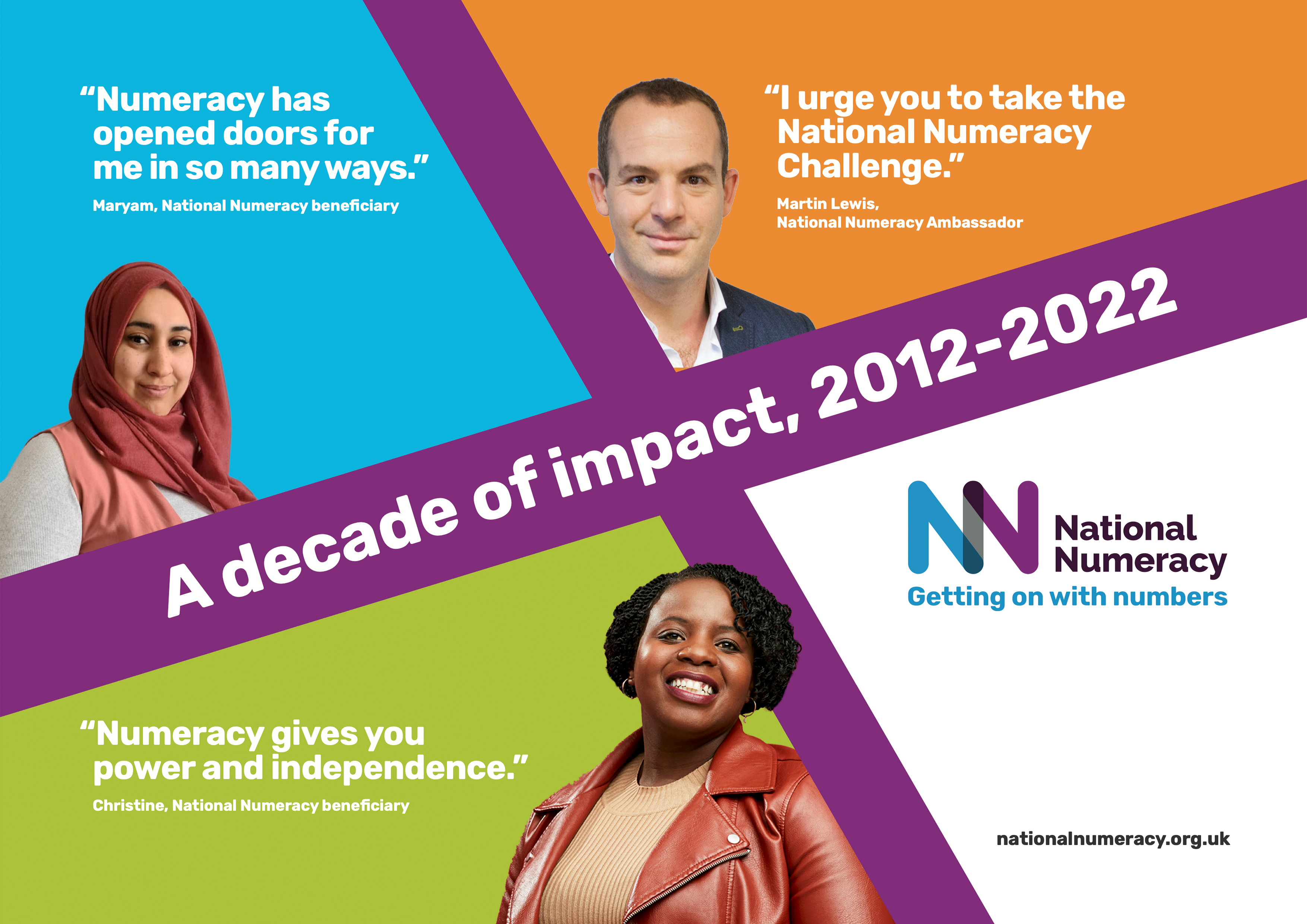New research
According to a new YouGov survey* commissioned by independent charity National Numeracy, we appear to care less about improving our numeracy than we did before the Covid-19 pandemic: 57% of respondents said they didn’t want to improve their maths and numeracy, compared to 43% in 2019, when National Numeracy carried out a similar survey.
The chief reason given for not wanting to improve was because people think they are already good at maths. But people are typically overestimating their skill. Nearly half (45%) of those who rated their numeracy as good scored less than three out of five on the numeracy test, which roughly equates to the level expected of primary school children.
Moreover, the new survey showed 54% of the UK’s working age population has low numeracy. The statistic is broadly in line with the Government’s most recent survey of adult skills, 2011’s Skills for Life, which put the figure at 49%.
Women and low income earners lack number confidence
Published to coincide with the charity’s 10th anniversary, the YouGov poll also shows that women and those on low incomes suffer from significant ‘gaps’ when it comes to number skills and confidence.
The research also found that women are twice as anxious as men about using maths and numbers. Almost a fifth of the nation (18%) said maths and numbers made them nervous, but when split by gender 24% of women agreed, compared to just 12% of men.
Less than a quarter of the working-age population (24%) has the numeracy level equivalent to a GSCE pass (Grade 4). A third of men (33%) but only 16% of women have reached this level.
Working class, unemployed and part-time workers have the lowest skills, highlighting where help is most needed
Collective action needed
Sam Sims, National Numeracy Chief Executive, said that National Numeracy has had incredible impact on hundreds of thousands of people’s lives over the past decade. But that low numeracy was stuck at a stubbornly low level was indicative of the scale of the issue: those with low skills or confidence number 15 million alone.
“Progress will require systemic change and sustained collective action from organisations and stakeholders across government, the public sector, business, community groups and charities,” Mr Sims said.
He added that National Numeracy hopes to scale up and build out it’s proven programmes over the next ten years to help break this cycle.
And he highlighted the acute need for improved numeracy right now: “From families navigating the cost-of-living crisis and businesses searching for skilled staff, to communities recovering from the Covid pandemic and the quest for greater national economic, educational, and social equity; numeracy is fundamental to the fabric of our lives and future of our nation.
“Together, we have made much progress. But the data shows the need to address low numeracy at the national level is as critical today as it was a decade ago, and the benefits could be more powerful than ever.”
Low numeracy costs the nation £25 billion a year
Struggling with numbers can make people more vulnerable to debt, unemployment, poor health and fraud and impacts mental health and opportunities - all exacerbated by the Covid-19 crisis. And it costs the UK economy a staggering £25 billion a year.
National Numracy's mission is to empower children and adults in the UK to get on with numbers so they can fulfil their potential at work, home and school. As an engine of social mobility, our work leads to better outcomes for society, the economy and, most importantly, individuals, particularly those in disadvantaged communities where the need is greatest.






